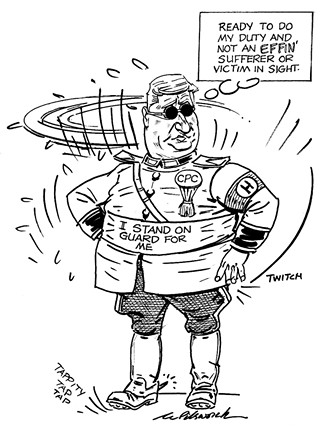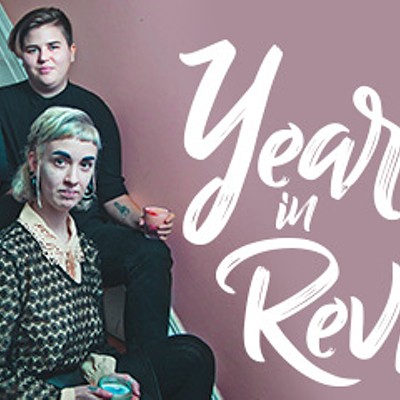It's been called the "Voyage of the Damned"---907 Jewish refugees fleeing Nazi persecution set sail in 1939 from Hamburg, Germany for Havana, Cuba on the ocean liner St. Louis. One of them was four-year-old Lisa Avedon, who told her story in Halifax last week at a ceremony marking the 70th anniversary of the voyage. "The fact that I was a passenger on the ill-fated voyage of the St. Louis has certainly been a huge influence on my life," Avedon told about 140 people at the Maritime Museum of the Atlantic. "I have always thought of myself as a passenger, not a survivor."
When the Jewish refugees reached Havana, Cuban authorities refused to honour their entry visas, forcing them to remain on board the ship. Avedon still vividly remembers seeing her uncle, who had flown down from the US, alongside the St. Louis in a rowboat. "We were able to speak with my uncle from the deck. I remember begging him to take me with him." Jewish organizations couldn't find a country willing to accept the refugees. Within three days, the St. Louis left Havana shadowed by an American Coast Guard ship under orders to keep the liner away from the US coast so that its passengers couldn't try to swim ashore.
Prominent Canadians appealed to the prime minister to accept the refugees, but a Liberal government, implacably opposed to letting Jews into Canada, rejected their appeal. After the St. Louis arrived at Antwerp, Belgium, Avedon and her family made their way to England and eventually joined her uncle in the US. But many of the refugees ended up in countries later occupied by Germany, and 255 died in the Nazi death camps. Their names were read out during last week's ceremony.
"We have to admit that it was our country who sent 255 passengers of the St. Louis, who we could have made room for, to their deaths," says John Hennigar-Shuh, the museum official who hosted the ceremony. On October 6, the museum will open an exhibit featuring a replica of the St. Louis and key documents related to Canada's decision to reject its Jewish passengers. "I think the museum has a role in helping our people to remember where we've been and what the implications are," Hennigar-Shuh says, "and maybe begin to formulate how we can ensure that we don't go there again." He adds that the well-documented anti-Semitism of Canadian immigration officials doomed the Jewish refugees. (One such official was asked by reporters during an off-the-record briefing in 1945 how many displaced Jews would be let into Canada after the war. "None," he replied, "is too many.")
"We just can't say as people have said in the past, 'Oh well, they couldn't have known,'" says Hennigar-Shuh, "Well they could have known and they chose not to know, they chose to close their eyes and they chose to allow their worst racist tendencies to rule their decisions."
It would be nice to think that when it comes to immigrants and refugees, prejudice, bias and racism are relics of the past. But as Hennigar-Shuh points out, Canada recently rejected a US request to admit Chinese Muslim Uighurs held for nearly eight years in the infamous American torture camp at Guantanamo. Last year, an American judge ruled the Uighurs posed no terrorist threat and ordered them released. Canada also refused for years to allow Sudanese-Canadian citizen Abousfian Abdelrazik to return to Montreal from Sudan even though there's no evidence he poses a terrorist threat. The government finally relented last week after being ordered to do so by a Federal Court judge. And in 2004, Canada closed its borders to people from Central America and the Caribbean who travel through the US seeking refugee status here.
"I think there's a message from the St. Louis that has to be reinforced," says Hennigar-Shuh. "That's why we're doing what we're doing."
Feel like a refugee? Email Bruce Wark at [email protected].
















